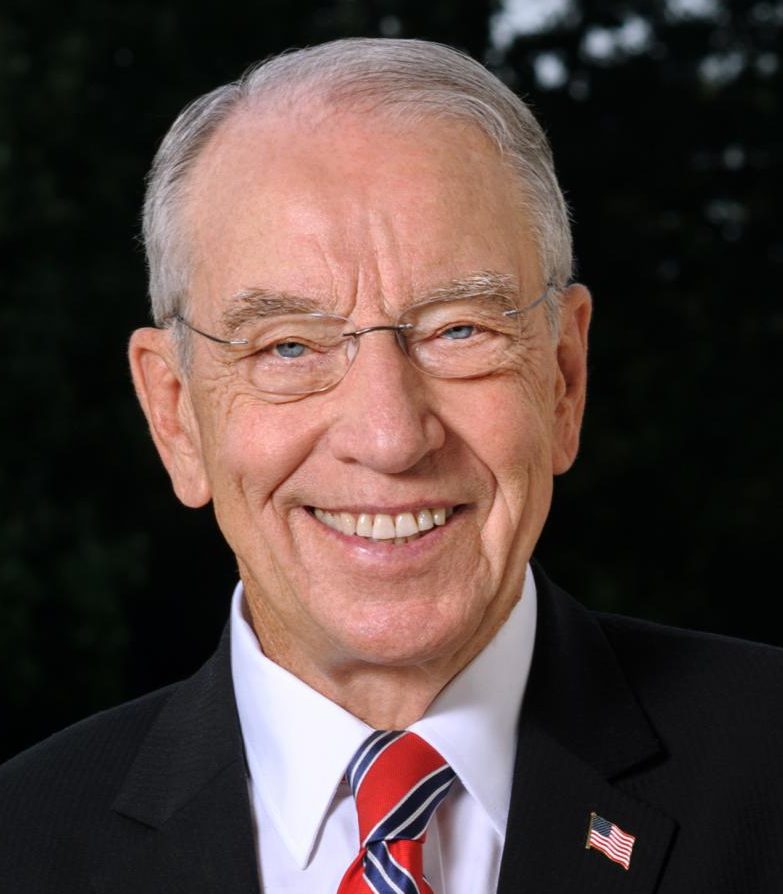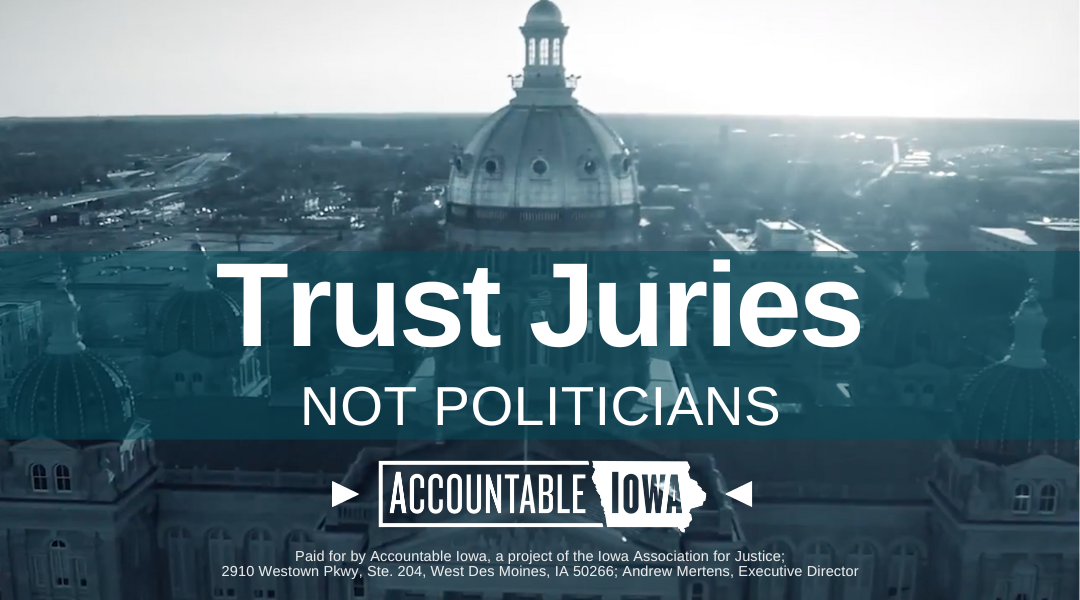Q: Does human trafficking happen in Iowa?
A: Yes. At my annual 99 county meetings, I hear from law enforcement officers, victim and survivor advocates, religious leaders, court officials and concerned citizens about human trafficking taking place in communities across the state. This insidious crime is a form of slavery in the 21st century that occurs when a trafficker uses force, fraud or coercion to control an individual for forced labor, sex trafficking or other servitude. Victims may be misled to take a job under false pretenses that turns out to have low-paying, abusive working conditions. Sex traffickers target vulnerable people, in many cases online, and promise them a better life. Instead, they are recruiting them for sexual exploitation. At one of my county meetings this year in Southeast Iowa, law enforcement officials shared their frustration with the open border policies of the Biden administration that have empowered powerful cartels in Mexico. The cartels operate sophisticated rings of organized retail theft, peddle illicit drugs into local communities and push human trafficking into America’s heartland. Human smugglers charge victims to be illegally brought across the border and then force them into involuntary labor or prostitution to repay their debts. The U.S. Department of Homeland Security estimates annual global profits of $150 billion, victimizing approximately 25 million people, with 80% forced labor and 20% sex trafficking.
As former chairman of the Senate Judiciary Committee, I put this issue on the front burner of the policymaking tables. In 2015, I helped steer the bipartisan Justice for Victims of Trafficking Act through Congress that clarified federal grant resources can be used to meet housing needs of trafficking victims and classified child pornography as human trafficking under federal law. In addition to oversight hearings on Capitol Hill, I’ve led roundtable discussions in Des Moines to help raise public awareness that these crimes, from child pornography to human trafficking and domestic violence, happen in America’s heartland. This included a meeting last summer at the Central Iowa Trauma Recovery Center to hear from staff, community leaders and survivors to learn about their important work of healing and recovery. In 2018, I helped secure grant funding for local education agencies to train school staff and educate students about the dangers of human trafficking that was included in the Frederick Douglass Trafficking Victims Prevention and Reauthorization Act. In December, the Senate adopted my bipartisan bill to reauthorize the Trafficking Victims Protection Act, a federal law passed more than two decades ago that made human trafficking a federal crime. The updates are designed to improve training and outreach to law enforcement and high-risk youth to detect human trafficking. It supports wrap-around services and trauma-informed resources for survivors, such as housing, counseling, medical and court advocacy, to help victims seek justice and help reclaim their dignity and freedom. In this Congress, I’m working to beef up tools to catch bad actors operating money laundering schemes to conceal their crimes and dodge law enforcement. From my leadership position in the U.S. Senate, I’ll continue working to help erase trafficking crimes that prey on at-risk youth and marginalized members of society. Policymakers and the American people can’t take for granted our cherished blessings of freedom. Shining light on these wretched crimes will help empower individuals to speak up and reach out for help and support.
Q: How can Iowans report a suspected case of human trafficking?
A: Many people don’t realize this crime occurs under our noses in broad daylight. So, the first step is improving public awareness. According to the Department of Homeland Security, these crimes occur where people go to work and go about daily life, including workers in restaurants, hotels, factories, massage parlors, hair and nail salons and in agriculture, landscaping and construction. I encourage Iowans in the hospitality sector, and in the trucking, busing and airline industries to stay alert. If you see something, say something. The Department of Homeland Security launched a Blue Campaign to help Americans look for signs of human smuggling or trafficking. It tailored toolkits for specific sectors of the economy and people in the community, including youth advisors, faith-based leaders, student leaders on college campuses, as well as the transportation and hospitality industries.
Confidential information may be reported around-the-clock to the National Human Trafficking Hotline. To report a tip or request a referral for crisis-related services, Iowans may call toll-free (888) 373-7888 or text BEFREE (233733). If someone is in immediate danger, call 911. Find survivor services in Iowa here. (https://www.iowaattorneygeneral.gov/media/cms/6_Human_Trafficking_Service_Program_1319F6F344416.pdf)
World Day Against Trafficking in Persons is observed on July 30. Senator Grassley is a recipient of the 2020 Outstanding Anti-Human Trafficking Service Award from Iowa Gov. Kim Reynolds.
















